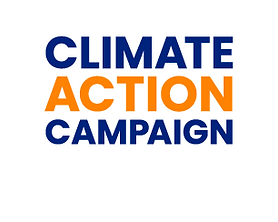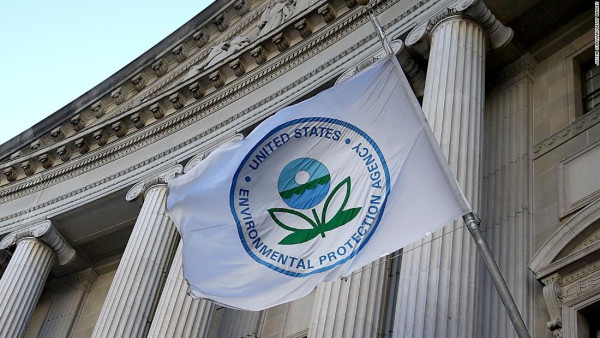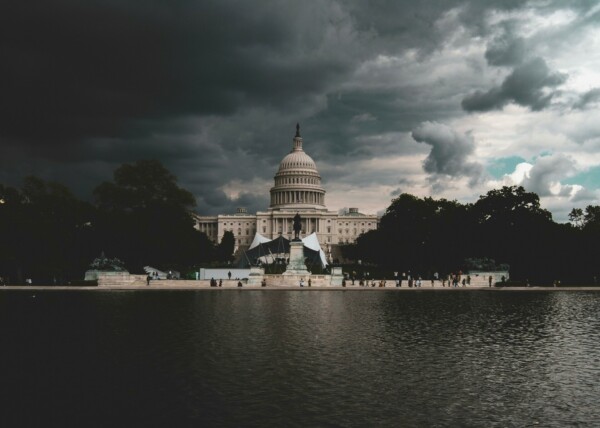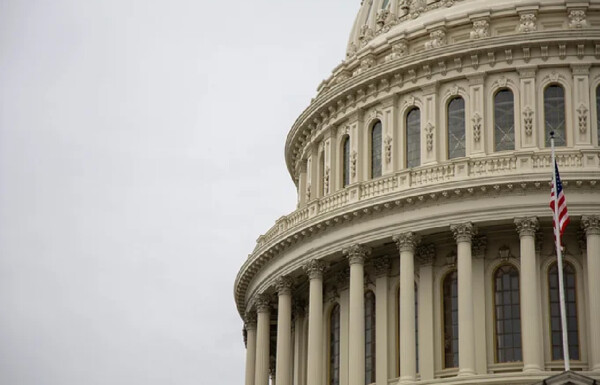Climate Advocates Deliver Over One Million Public Comments to EPA, Calling for Strong Limits on Power Plant Climate Pollution
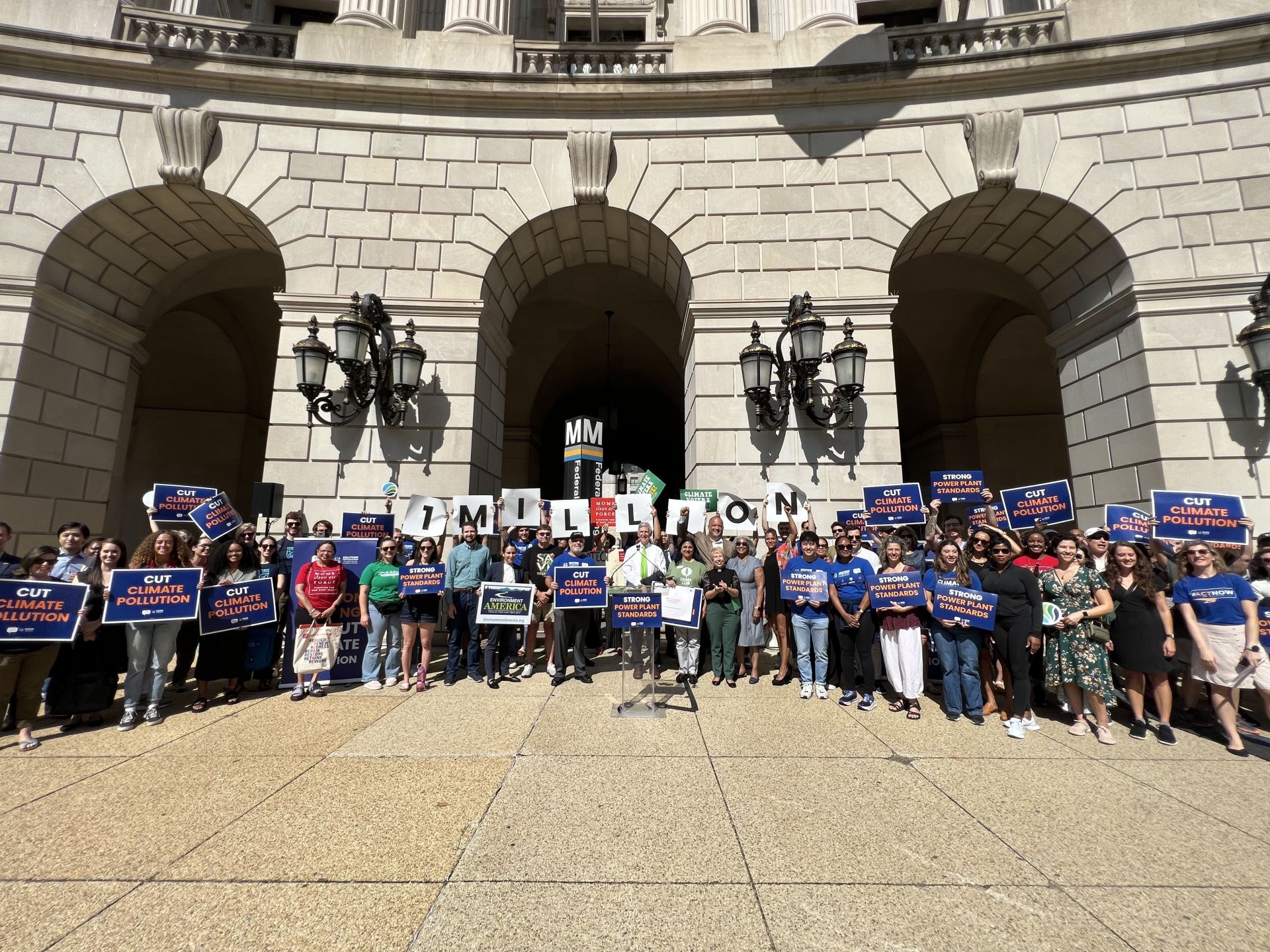
Dozens of advocates gathered outside EPA HQ to hand deliver the largest single comment collection for any major rule since the start of the Biden Administration
August 8, 2023 (WASHINGTON, D.C.) — This morning, leaders at the Environmental Protection Agency (EPA) received an unequivocal message, in the form of more than 1 million comments submitted from Americans across the nation, about the urgency for strong limits on dangerous power plant climate pollution.
As the comment period closes on the EPA’s proposed power plant pollution standards, climate advocates, organized by the Climate Action Campaign, hand delivered more than 1 million public comments to the EPA urging the agency to adopt the strongest possible limits on climate pollution from electricity generation facilities. This marks the largest single comment delivery to EPA for any major rule since the start of the Biden Administration.
Sierra Club Executive Director Ben Jealous kicked off the event, saying, “We stand together at a crossroads for the future of a livable climate.” Noting the historic number of public comments on the EPA’s proposal, he remarked that “each comment represents a voice demanding strong carbon pollution standards for America’s power plants.”
“With so much of the nation struggling with extreme heat and other devastation triggered by the climate crisis, more than 1 million people — more than for any other EPA major rule comment period of the Biden administration — are calling on EPA to make bold progress on these power plant standards. We have one message for the EPA and the whole Biden Administration: we need the strongest possible climate pollution standards for power plants if the president is to meet his commitment to slash climate pollution by half by 2030,” said Margie Alt, director of the Climate Action Campaign.
More than one quarter of America’s climate pollution comes from power plants, and fossil fuels, such as coal and natural gas, the largest source of electricity generation in the United States. Although climate advocates acknowledge that the EPA’s current proposal is a step forward in cutting climate pollution from the power sector, they remain deeply concerned that the proposal does not go far enough.
President Biden pledged to cut climate pollution in half by 2030, the amount that scientists say is necessary to avoid the worst impacts of climate change. Advocates argue that if the EPA doesn’t finalize stronger power plant standards than what the agency has already proposed, the president will not be able to meet his commitment to halve climate pollution by the end of this decade.
“We are not asking for anything that the president hasn’t already promised,” Jealous said. “We are asking – and expecting – President Biden to keep his commitment. The EPA must enact stronger, more comprehensive standards for power plant pollution.”
U.S. Representative Don Beyer (D-VA) echoed Jealous’ concern about the strength of current proposed standards.
“We need strong standards to cut carbon pollution from power plants. It’s not an option – it’s a dire necessity,” Beyer said. “The EPA’s proposal was a good start, but it needs to put in place the strongest possible limits on power plant pollution in order to meet the President’s commitment of cutting climate pollution in half by 2030.”
Others focused on the moral imperative we have to address this dangerous source of climate pollution. Reverend Susan Hendershot, President of Interfaith Power & Light, an organization devoted to mobilizing people of faith to support climate action, noted the groundswell of public support for stronger power plant standards.
“Across America, people of faith are uniting in a powerful call to action, coming together to demand that we care for creation by implementing more comprehensive standards to cut power plant pollution,” Reverend Hendershot said. Referring to the public comments delivered to the EPA, she said, “Every comment is a reminder of the broad support for these standards and our collective strength and unity in protecting those most vulnerable.”
“The pollution that causes climate change also degrades our air quality, harming public health in uneven and disproportionate ways, particularly in overburdened communities that are least prepared to manage these impacts,” said Dr. Doris Browne, former president of the National Medical Association (NMA), the oldest and largest association of Black physicians in America. “On top of that, climate change itself will multiply the many public health risks already at our doorstep. So when we stand up for stronger standards to cut climate pollution from power plants, we’re really standing up for our own health and wellbeing. It’s as simple as that.”
Shellilyn Marie, a Wheelchair Agent at the Phoenix Airport, highlighted the real world impacts of climate change and how America’s reliance on fossil fuels has affected her life. While living in Hawaii for nearly a decade, she was displaced by the Red Hill Water Crisis, a massive fuel leak that contaminated Oahu’s water supply. Eventually, she moved to Arizona, where residents are suffering through a historic, climate-fueled extreme heatwave.
“At work, even with the air conditioner on inside the jet bridge, it can still feel like you’re standing in an oven,” Marie said. “But that’s the job. I don’t have a choice. I have to be there for my passengers.”
At one point, according to Marie, the clocks in the jet bridges displayed the temperature as well as the time. She said it was common to see the temperature reach above 100 degrees in the jet bridge and gate agents worried that the prolonged exposure to extreme heat was bad for passengers and it has had noticeable effects on her own health.
“We are living the consequences of climate change every day in Arizona,” she said. “If the EPA wants to know why we need stronger power plant standards, why we need to do everything possible to cut climate pollution, they should look to us in Arizona. Our daily experiences are all the proof they need.”
These stories and others like them are reflected in the comments delivered today, validating the need for EPA to revisit and strengthen its proposal to cut climate pollution from power plants.
“Our job is to follow the science and mobilize the public to push for the strongest and boldest climate policies possible. The EPA’s job is to make these power plant standards as strong and as comprehensive as possible within the constraints of the law – including both coal and gas plants – while ensuring protections for the most impacted communities,” Alt added.
###
